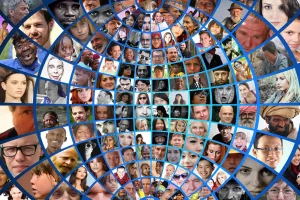We are all familiar with the feeling of finding the perfect article on Google, whether it be for school or personal use, only to be blocked by a paywall asking you to subscribe before reading more. To boot, it seems as if this phenomenon is occurring more and more frequently as more news outlets adopt the subscription-based business model. As its frequency amplifies, it is important to look into the ethics of the news paywall and the extent to which it can be utilized before it feels like elitist censorship.
The mission of journalism is to provide citizens with the necessary and accurate information to make informed decisions in all aspects of their daily lives. However, like everything, journalism has been significantly affected by the expansion of the internet and the shift away from physical newspapers to digital media. In the context of the paywall, it seems as if news outlets are prioritizing monetary returns over the fulfillment of the mission of journalism.
Prior to the mass shift towards digital media, news outlets made their profits from people physically purchasing the newspapers in which they wished to read each day. Consequently, as online versions of such newspapers have become widely accessible, there has been a decrease in consumers who are willing to pay for the physical copy over the (at first) free digital version. News outlets were thus faced with the issue of needing to discover new pathways to make a profit for the company.
The initial response to the challenge was to sell website space for digital advertising, something that we continue to see today. Such forms of advertising are something that this generation is more than familiar with, from noisy pop-ups to changing ads covering every open space on the browser. This caused a significant portion of consumers to install ad-blocking software that undermined the mission of the news outlets to make a profit in the face of the digital shift. On the same note, some news outlets found themselves stuck in a cycle of publishing low-journalistic quality articles (ie. clickbait or pop culture) in an attempt to achieve traffic quotas that advertisers are searching for since such media tends to draw more people to the site. That being said, they were back to square one. The Wall Street Journal thus pioneered the idea of the news paywall in 1996, when they introduced a hard paywall to their users. This means that users had the choice of paying a subscription ex-ante or being blocked from reading any article altogether.
Today, the most widespread paywall method that digital news outlets follow is a soft approach. Perhaps the most commonly seen is the metered paywall, where the reader has access to a limited number of articles before being blocked by a paywall. Another common method is the freemium model under which readers only face a paywall when attempting to access a curated set of articles chosen by the publisher. Such a model is favored by many publishers within the EU. As an overview, 76% of online news outlets incorporated some sort of paywall in 2019 versus 46% in the EU.
How much are people actually paying to access their news? A 2019 study found that the average across Finland, France, Germany, Italy, Poland, the United Kingdom, and the United States is $15.75 per month or $189 per year. This number varies, but whether it goes up or down, the question remains: Is the news being censored for those unwilling/unable to pay?
The paywall is a method for new outlets to maintain their profits in light of the digital wave. The price of creation is being passed onto the consumer, as the news outlets are unwilling to pay the costs it creates to produce its content. This is a fairly normal idea, but when it is applied to the freedom to access the news, it feels less than ethical. When a price is put on the ability of the common person to be aware of her surroundings, both locally and globally, it undermines the original intent of journalism. Sure, it is possible to access free news, but any limit on the ability of the average person to access news that is necessary to make informed decisions in their day-to-day lives is an infringement on their right to be an active participant in society. The slogan of the Washington Post is “Democracy Dies in Darkness”, but do individuals need to pay to achieve democracy? Do those who are unable to pay, for whatever reason, not deserve to be part of the informed, democratic system? The questions go on and on.
Another repercussion could be users turning to other, less reputable news outlets. While on one hand, this could be very positive supporting smaller and more independent resources, it could also have quite negative outcomes. For instance, it could mean people being more likely to encounter misinformation as the information is coming from less trustworthy or uncorroborated sources.
It makes sense that news outlets need to make money. They need to pay their employees and afford business costs, etc. However, the new wave of paywalls is not the ethical method to undertake for the adverse effects it inflicts, like depriving some individuals of the ability to stay informed of the world around them. Like most issues, the paywall phenomenon has the potential to spiral out of control. If digital media outlets fail to find a solution that both makes them profitable while also working in line with the intent of journalism, serious complications could arise in terms of the exclusion of certain groups from conversations and issues happening around them. Journalism, in its pursuit of the truth, should now more than ever fight to share the fruits of its labor with all who will listen, especially as we find ourselves diving deeper into the digital age and all the potential for compromised information that comes along with it.
Featured image: retrieved from https://www.criticalmention.com/blog/online-news/how-to-get-around-paywalls-with-licensed-content/







